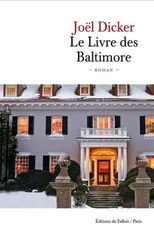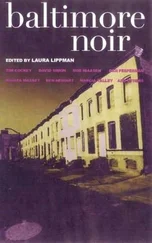Owen Wister - Lady Baltimore
Здесь есть возможность читать онлайн «Owen Wister - Lady Baltimore» весь текст электронной книги совершенно бесплатно (целиком полную версию без сокращений). В некоторых случаях можно слушать аудио, скачать через торрент в формате fb2 и присутствует краткое содержание. Жанр: Вестерн, на английском языке. Описание произведения, (предисловие) а так же отзывы посетителей доступны на портале библиотеки ЛибКат.
- Название:Lady Baltimore
- Автор:
- Жанр:
- Год:неизвестен
- ISBN:нет данных
- Рейтинг книги:5 / 5. Голосов: 1
-
Избранное:Добавить в избранное
- Отзывы:
-
Ваша оценка:
- 100
- 1
- 2
- 3
- 4
- 5
Lady Baltimore: краткое содержание, описание и аннотация
Предлагаем к чтению аннотацию, описание, краткое содержание или предисловие (зависит от того, что написал сам автор книги «Lady Baltimore»). Если вы не нашли необходимую информацию о книге — напишите в комментариях, мы постараемся отыскать её.
Lady Baltimore — читать онлайн бесплатно полную книгу (весь текст) целиком
Ниже представлен текст книги, разбитый по страницам. Система сохранения места последней прочитанной страницы, позволяет с удобством читать онлайн бесплатно книгу «Lady Baltimore», без необходимости каждый раз заново искать на чём Вы остановились. Поставьте закладку, и сможете в любой момент перейти на страницу, на которой закончили чтение.
Интервал:
Закладка:
When the boat brought us back to the wharf, there were the rest of my flowers unbestowed, and upon whom should I bestow them? I thought first of Eliza La Heu, but she wouldn't be at the Exchange so late as this. Then it seemed well to carry them to Mrs. Weguelin. Something, however, prompted me to pass her door, and continue vaguely walking on until I came to the house where Miss Josephine and Miss Eliza lived; and here I rang the bell and was admitted.
They were sitting as I had seen them first, the one with her embroidery, and the other on the further side of a table, whereon lay an open letter, which in a few moments I knew must have been the subject of the discussion which they finished even as I came forward.
"It was only prolonging an honest mistake." That was Miss Eliza.
"And it has merely resulted in clinching what you meant it to finish." That was Miss Josephine.
I laid my flowers upon the table, and saw that the letter was in John Mayrant's hand. Of course.
I avoided looking at it again; but what had he written, and why had he written? His daily steps turned to this house — unless Miss Josephine had banished him again.
The ladies accepted my offering with gracious expressions, and while I told them of my visit to Live Oaks, and poured out my enthusiasm, the servant was sent for and brought water and two beautiful old china bowls, in which Miss Eliza proceeded to arrange the flowers with her delicate white hands. She made them look exquisite with an old lady's art, and this little occupation went on as we talked of indifferent subjects.
But the atmosphere of that room was charged with the subject of which we did not speak. The letter lay on the table; and even as I struggled to sustain polite conversation, I began to know what was in it, though I never looked at it again; it spoke out as clearly to me as the launch had done. I had thought, when I first entered, to tell the ladies something of my meeting with Hortense Rieppe; I can only say that I found this impossible. Neither of them referred to her, or to John, or to anything that approached what we were all thinking of; for me to do so would have assumed the dimensions of a liberty; and in consequence of this state of things, constraint sat upon us all, growing worse, and so pervading our small-talk with discomfort that I made my visit a very short one. Of course they were civil about this when I rose, and begged me not to go so soon; but I knew better. And even as I was getting my hat and gloves in the hall I could tell by their tones that they had returned to the subject of that letter. But in truth they had never left it; as the front door shut behind me I felt as if they had read it aloud to me.
XVI: The Steel Wasp
Certainly Hortense Rieppe would have won the battle of Chattanooga! I know not from which parent that young woman inherited her gift of strategy, but she was a master. To use the resources of one lover in order to ascertain if another lover had any; to lay tribute on everything that Charley possessed; on his influence in the business world, which enabled him to walk into the V–C Chemical Company's office and borrow an expert in the phosphate line; on his launch in which to pop the expert and take him up the river, and see in his company and learn from his lips just what resources of worldly wealth were likely to be in-store for John Mayrant; and finally (which was the key to all the rest) on his inveterate passion for her, on his banker-like determination through all the thick and thin of discouragement, and worse than discouragement, of contemptuous coquetry, to possess her at any cost he could afford;—to use all this that Charley had, in order that she might judiciously arrive at the decision whether she would take him or his rival, left one lost in admiration. And then, not to waste a moment! To reach town one evening, and next morning by ten o'clock to have that expert safe in the launch on his way up the river to the phosphate diggings! The very audacity of such unscrupulousness commanded my respect: successful dishonor generally wins louder applause than successful virtue. But to be married to her! Oh! not for worlds! Charley might meet such emergency, but poor John, never!
I nearly walked into Mrs. Weguelin and Mrs. Gregory taking their customary air slowly in South Place.
"But why a steel wasp?" I said at once to Mrs. Weguelin. It was a more familiar way of beginning with the little, dignified lady than would have been at all possible, or suitable, if we had not had that little joke about the piano snobile between us. As it was, she was not wholly displeased. These Kings Port old ladies grew, I suspect, very slowly and guardedly accustomed to any outsider; they allowed themselves very seldom to suffer any form of abruptness from him, or from any one, for that matter. But, once they were reassured as to him, then they might sometimes allow the privileged person certain departures from their own rule of deportment, because his conventions were recognized to be different from theirs. Moreover, in reminding Mrs. Weguelin of the steel wasp, I had put my abruptness in "quotations," so to speak, by the tone I gave it, just as people who are particular in speech can often interpolate a word of current slang elegantly by means of the shade of emphasis which they lay upon it.
So Mrs. Weguelin smiled and her dark eyes danced a little. "You remember I said that, then?"
"I remember everything that you said."
"How much have you seen of the creature?" demanded Mrs. Gregory, with her head pretty high.
"Well, I'm seeing more, and more, and more every minute. She's rather endless."
Mrs. Weguelin looked reproachful. "You surely cannot admire her, too?"
Mrs. Gregory hadn't understood me. "Oh, if you really can keep her away, you're welcome!"
"I only meant," I explained to the ladies, "that you don't really begin to see her till you have seen her: it's afterward, when you're out of reach of the spell." And I told them of the interview which I had not been able to tell to Miss Josephine and Miss Eliza. "I doubt if it lasted more than four minutes," I assured them.
"Up the river?" repeated Mrs. Gregory
"At the landing," I repeated. And the ladies consulted each other's expressions. But that didn't bother me any more.
"And you can admire her?" Mrs. Weguelin persisted.
"May I tell you exactly, precisely?"
"Oh, do!" they both exclaimed.
"Well, I think many wise men would find her immensely desirable — as somebody else's wife!"
At this remark Mrs. Weguelin dropped her eyes, but I knew they were dancing beneath their lids. "I should not have permitted myself to say that, but I am glad that it has been said."
Mrs. Gregory turned to her companion. "Shall we call to-morrow?"
"Don't you feel it must be done?" returned Mrs. Weguelin, and then she addressed me. "Do you know a Mr. Beverly Rodgers?"
I gave him a golden recommendation and took my leave of the ladies.
So they were going to do the handsome thing; they would ring the Cornerlys' bell; they would cross the interloping threshold, they would recognize the interloping girl; and this meant that they had given it up. It meant that Miss Eliza had given it up, too, had at last abandoned her position that the marriage would never take place. And her own act had probably drawn this down upon her. When the trustee of that estate had told her of the apparent failure of the phosphates, she had hailed it as an escape for her beloved John, and for all of them, because she made sure that Hortense would never marry a virtually penniless man. And when the work went on, and the rich fortune was unearthed after all, her influence had caused that revelation to be delayed because she was so confident that the engagement would be broken. But she had reckoned without Hortense; worse than that, she had reckoned without John Mayrant; in her meddling attempt to guide his affairs in the way that she believed would be best for him, she forgot that the boy whom she had brought up was no longer a child, and thus she unpardonably ignored his rights as a man. And now Miss Josephine's disapproval was vindicated, and her own casuistry was doubly punished. Miss Rieppe's astute journey of investigation — for her purpose had evidently become suspected by some of them beforehand — had forced Miss Eliza to disclose the truth about the phosphates to her nephew before it should be told him by the girl herself; and the intolerable position of apparent duplicity precipitated two wholly inevitable actions on his part; he had bound himself more than ever to marry Hortense, and he had made a furious breach with his Aunt Eliza. That was what his letter had contained; this time he had banished himself from that house. What was his Aunt Eliza going to do about it? I wondered. She was a stiff, if indiscreet, old lady, and it certainly did not fall within her view of the proprieties that young people should take their elders to task in furious letters. But she had been totally in the wrong, and her fault was irreparable, because important things had happened in consequence of it; she might repent the fault in sackcloth and ashes, but she couldn't stop the things. Would she, then, honorably wear the sackcloth, or would she dishonestly shirk it under the false issue of her nephew's improper tone to her? Women can justify themselves with more appalling skill than men.
Читать дальшеИнтервал:
Закладка:
Похожие книги на «Lady Baltimore»
Представляем Вашему вниманию похожие книги на «Lady Baltimore» списком для выбора. Мы отобрали схожую по названию и смыслу литературу в надежде предоставить читателям больше вариантов отыскать новые, интересные, ещё непрочитанные произведения.
Обсуждение, отзывы о книге «Lady Baltimore» и просто собственные мнения читателей. Оставьте ваши комментарии, напишите, что Вы думаете о произведении, его смысле или главных героях. Укажите что конкретно понравилось, а что нет, и почему Вы так считаете.










